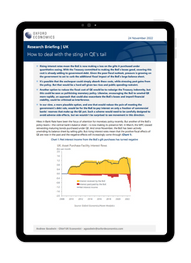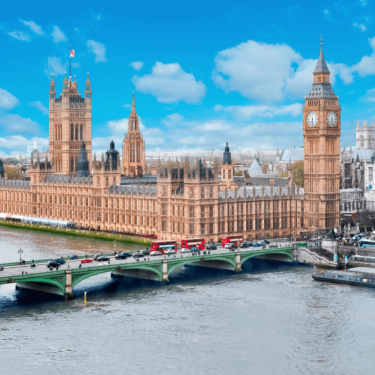How to deal with the sting in QE’s tail

Rising interest rates mean the BoE is now making a loss on the gilts it purchased under quantitative easing. With the Treasury committed to making the BoE’s losses good, covering this cost is already adding to government debt. Given the poor fiscal outlook, pressure is growing on the government to act to curb the additional fiscal impact of the BoE’s large balance sheet.
What you will learn:
- It’s possible that the exchequer could simply absorb these costs, while stressing past gains from the policy.
- Another option to reduce the fiscal cost of QE would be to redesign the Treasury indemnity, but this could be seen as politicising monetary policy.
- In our view, a more plausible option, and one that would reduce the pain of meeting the government’s debt rule, would be for the BoE to pay interest on only a fraction of commercial banks’ reserves that make up the QE pot.
Tags:
Related Services

Service
Economic and Political Risk Evaluator
A framework for assessing economic and geopolitical risks.
Find Out More
Service
UK Macro Service
Track, analyse, and react to macro events and future trends in the United Kingdom.
Find Out More
Service
Global Risk Service
A suite of data-driven and forward-looking tools that provide an objective and transparent measure of risk.
Find Out More
Service
Global Macro Strategy Service
Global insight and opportunity at your fingertips.
Find Out More